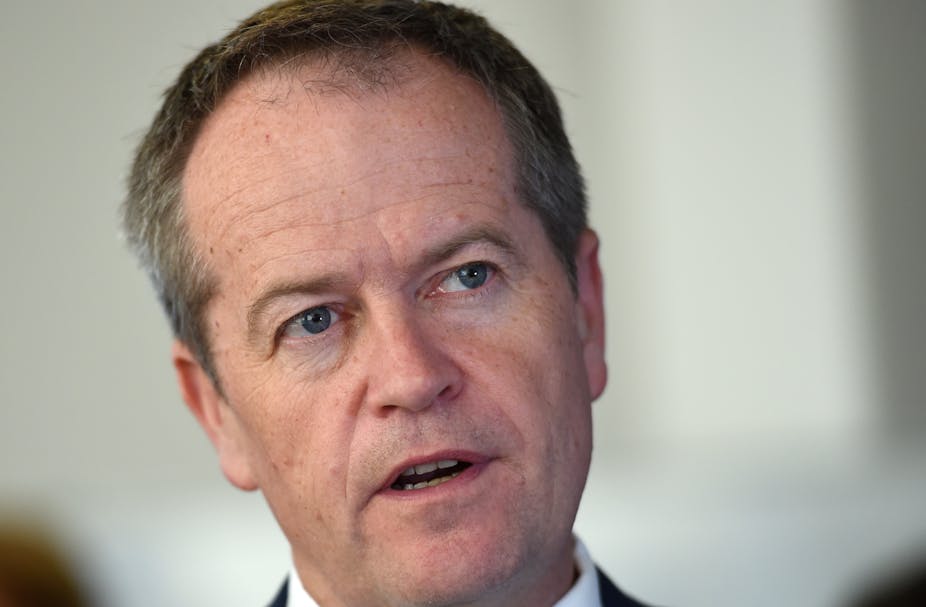Tougher penalties and a central role for the Australian Securities and Investments Commission (ASIC) are key parts of a policy to crack down on union corruption to be announced by Opposition Leader Bill Shorten on Monday.
The measures would also target “dodgy auditors” who are complicit in malpractice, give protection to whistleblowers, and impose funding disclosure provisions for union elections.
But there would be protections for volunteers, with only paid officials subject to penalties similar to those under corporate law.
The plan to “strengthen accountability and transparency of unions” comes as Labor faces the coming report of the trade union royal commission and will be under pressure at next year’s election over its union links.
On Sunday the Construction, Foresty, Mining and Energy Union’s (CFMEU) Victorian secretary John Setka and his deputy Shaun Reardon were arrested and charged with blackmailing concrete supplier company Boral during the union’s dispute with construction firm Grocon. The two men will appear in court in Melbourne on Tuesday. The charges stem from the commission’s inquiry.
Labor has opposed the governance legislation the Coalition has put to the parliament, saying it goes too far, especially in relation to volunteers.
Under the ALP policy a Labor government would make ASIC, with its coercive powers, the regulator of the most serious contraventions of the Fair Work (Registered Organisations) Act.
The general manager of the Fair Work Commission would continue its role as regulator, with its current powers to conduct investigations and inquiries, and resolve minor compliance issues. It would be able to share information with ASIC. An extra $4.5 million over four years would be provided to boost its monitoring of the 109 registered employer and employee organisations.
In toughening penalties Labor would focus on behaviour “which is intended to deceive union members or the regulator”.
Penalties would be increased from $10,800 to $18,000 for those engaging in false and misleading conduct, or failing to provide required information to members.
A Shorten government would also double the maximum penalties for all criminal offences under the act.
“Labor will also tackle the most egregious conduct by increasing fines from $10,800 to $216,000 for paid officials who act in a way that ‘materially prejudices’ the interests of the union or its members,” the policy says.
“These penalties will apply to breaches of the duties owed to the union and its members including the duty to act in good faith and to act with care and diligence. They will also apply to breaches of disclosure requirements like failure to disclose a material personal interest.”
A court would also be able to disqualify an official for these serious contraventions.
Labor says these are akin to penalties for publicly listed companies under the Corporations Act. But it would not impose the same regime on volunteers.
Unlike the directors of publicly listed companies, “officials of employer and employee organisations are primarily rank and file volunteers. Labor does not want to discourage people from volunteering in their communities, so only officials in paid positions who are responsible for decisions about the financial management of registered organisations will be subject to these aggravated penalties”.
Officials improperly taking part in a decision of the union from which they would personally benefit would be subject to a new civil penalty, with fines of up to $216,000 for serious breaches and $18,000 for more minor ones.
The policy says “it has become apparent that criminal conduct has occurred in some unions because auditors have been part of the scam or complicit by their silence”. Registered organisations would have to rotate their auditors every five years.
Whistleblower protections would be extended to the private and not-for-profit sectors.
Whistleblowers in registered organisations would be protected from any adverse action if they disclosed to any third party, including the media, provided they first raised the matter with one of the Fair Work regulators and the union itself.
Labor would also extend current electoral funding laws to donations and expenditure to all elections managed by the Australian Electoral Commission, including union elections. The ALP’s general policy is to reduce the disclosure threshold from the present $13,000 to $1000.
In a statement Shorten, workplace spokesman Brendan O'Connor and Shadow Attorney-General Mark Dreyfus say the proposed changes would “help ensure criminal conduct is detected at the earliest opportunity and dealt with by the full force of the law”.
“Labor’s proposed governance changes are measured yet tough and will support unions in their transition to a modern movement, which continues to advocate for nation-changing reforms.”

